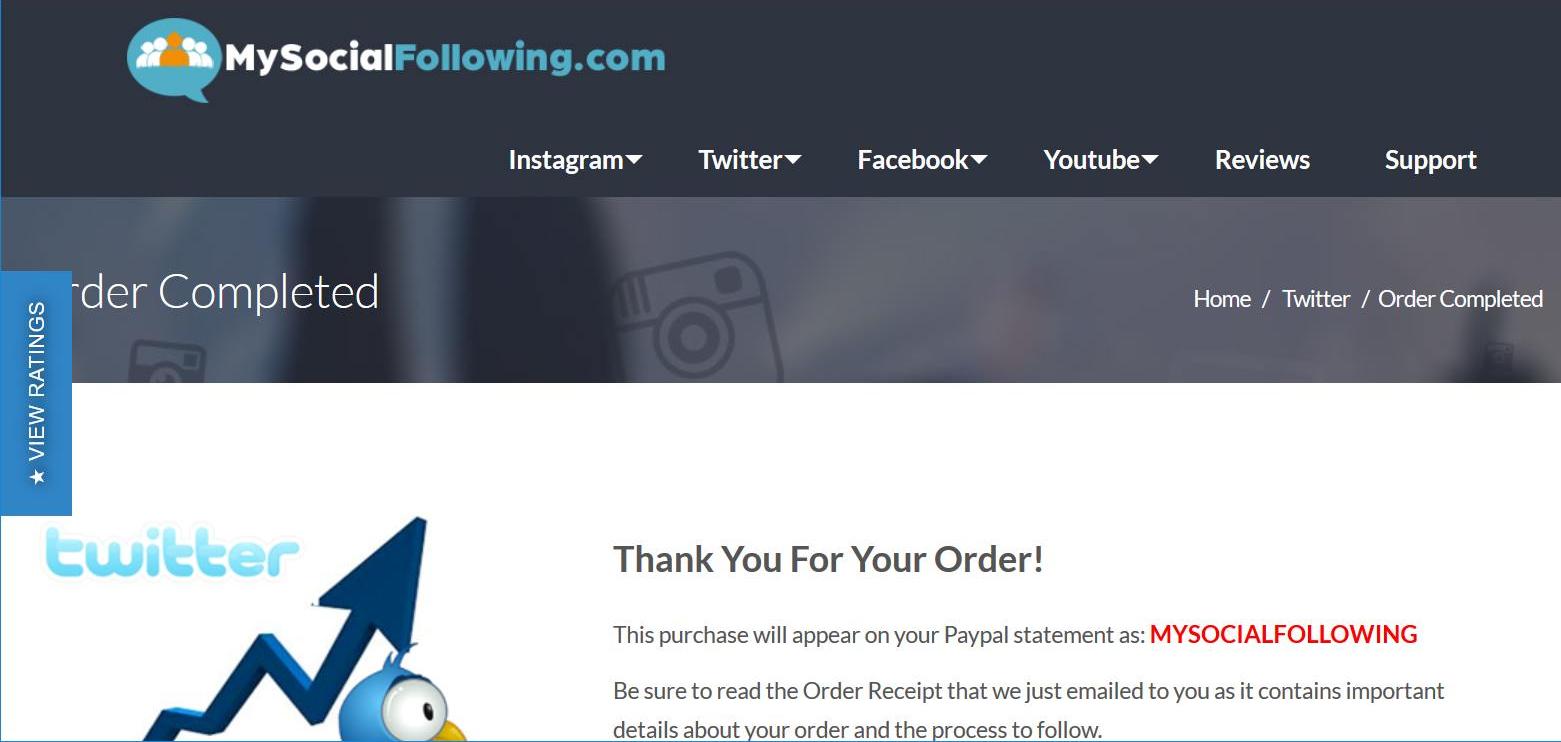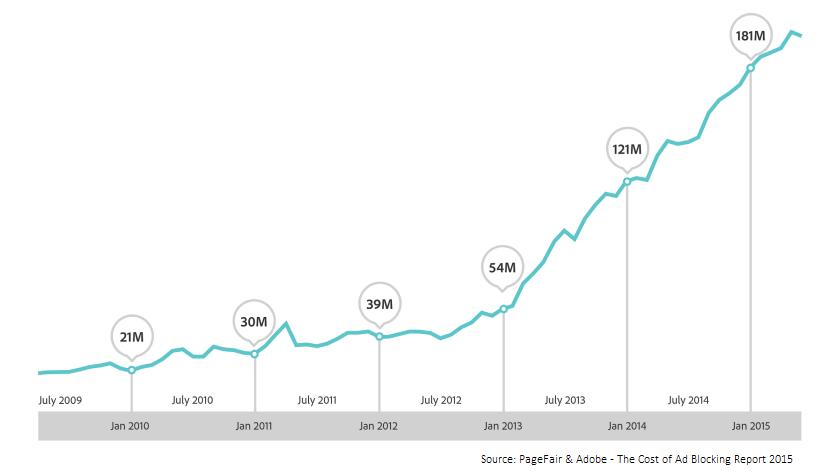It was Raid Night (sunday, 9:00pm) for my World of Warcraft raiding guild, and we had a couple of guests along for the quests. Per usual procedure, we were all collected in audio-chat, logged in to WoW, and most of us had a bottle of wine or some beer open, and as the raid continued – as was our wont – we got merry.
One of the guest who was running with us was kind of obnoxious, it turned out; several of us were making eyerolling chat gestures to eachother off the audio – and as Lord Obnoxious got tipsy, he became still more obnoxious. Then, he became maudlin, and started announcing to everyone on the chat how much he loved us for letting him raid with us, and how great a bunch of people we were for being his companions, and a bunch of stuff like that. Then, one of the guild, who was usually pretty quiet, chimed in: “your mom paid us.”
“What!?!?” he howled, drunkenly.
“Well, she knew you have trouble making friends, and so she hired us to entertain you.”
It turned out not to be a very funny joke, because Lord Obnoxious apparently believed (albeit briefly) that his mother would do something like that, and it took a bit of doing to unscrew the situation.

My horse is my friend. He’s kinda small. But he is my friend. (IronBadger of Clan Thunderhoof, ready to do some serious jousting!)
Friendship is a strange sort of commodity, yet it has become a token of sorts, online: we hear about how many followers of friends someone has and act as though that an indicator of popularity, or something. I hope this doesn’t come as a shock to you, but that game was immediately rigged by the enemies of authenticity.

My twitter profile, May 20, at 11:00am
Those 3757 followers are mostly people who’ve picked up some of my comments at conferences, or read one of my articles in the security world. I don’t “tweet” much and, as you can see, I hardly follow anyone. So I explored the war on authenticity and went to a website that offers “premium social media followers” – they have a whole menu of options, including followers that just follow you, followers that will “like” what you post, etc.

On a whim I “earned” an inauthentic following of sincere robots that make me look much, much more interesting on twitter than I am. I think they cost me about $50. They will follow you, too, in their nonexistent thousands, if you wave a fraction of a silver piece in their general direction.
One hour later, I had a small army of cyber-lemmings, jostling for place among my human followers. The services that run these bots are careful not to have the bots suddenly all start subscribing to the same person, because then they’ll look too bot-like; apparently the finer bots are able to “like” and even retweet (semi-randomly) your messages, or make approving comments.

It’s got to be quite an arms-race between the companies like facebook and twitter, and the herders of the inauthentic army of follower-bots.
To me, the weirdest part about the whole scene is that anyone with half a brain ought to realize that these “followers” are robots; that a substantial number of all of the users of twitter and facebook are robots. Yet marketing people still pay for “impressions” as though there are actual people reading their stupid ads. Real people are doing this: [source]

The online marketing community is like the worm Oroborous, who kicks his own ass. Of course 200 million people is just a drop in the bucket of the online user-base, but you’re looking into the future: online marketing is both selling “impressions” and generating “impressions” – it’s what Chuck Spinney calls “a self-licking ice cream cone.”
In our war on authenticity, we have created a marketing engine in which the appearance of attention is marketable. Briefly. Eventually, the end-game will be “conversions” – impressions will mean nothing, sales will be everything. That is already beginning: if you set yourself up as an Amazon affiliate, you are paid based on the amount of stuff that is sold through your links.
[By the way, I feel I should mention this, since I occasionally post links to Amazon so people can find books I recommend: I am not monetizing this blog in any way. Anything stderr brings in goes to the FtB collective’s operating expenses.]

The window has probably already closed, but if you could go back in time 4 or 5 years, you probably could create an online personality like YesJuls (who has 157k followers on Twitter), buy a ton of follows, retweets, and likes, then try to farm yourself out for product placement. Product placement shills get paid a certain amount to mention a product.
There is an entire subsurface economy devoted to selling inauthenticity. The “influencer” market is where you try to get a large number of followers, and then make a sponsorship arrangement to push a few products. Some influencers are extremely effective, because they’re marketing to a specific niche (e.g: cosmetics, shoes, drones, guns, games) the subsurface economy, as economies do, breaks itself into the aggregators and the aggregated, until vertically integrated markets form. Forums and consultants offer to serve as middle-people to make handshakes between “influencers” that want to sell themselves out, and bottom-feeder businesses that want to dabble in inauthenticity:

Yet, the influencer marketers know they are part of the Worm Oroborous:

I don’t think this is irony; it’s simply that they are utterly amoral marketing weasels who don’t give a damn about authenticity. They are literally undercutting their own value proposition, if someone will pay them a buck under the table to do it. As I have said elsewhere [stderr] marketing is one of the few inherently immoral jobs. It’s a field that’s constantly chasing the cutting edge of inauthenticity, because they immediately devalue everything that they do: every new communications medium, Facebook, Twitter, whatever, gets so festooned with ads that the ads become useless, so they sell you targeted ads – and when those become useless they’ll sell you influencer product placement ads designed to sneak past your notice.

My blog readership has not changed at all, because of the addition of 10,000 followers on twitter. I could probably buy 10,000 followers and commenters on this blog (Now, don’t go start giving eachother suspicious looks! You’re all real as far as I can tell) and then I’d have huge gigantic amounts more nothing.

The war on authenticity creates a wasteland and calls it “social media.” But that’s like saying that the Las Vegas “Paris” hotel reminds you of Paris, France. It’s all polyurethane foam and paint and there is no substance.
One authentic friend is worth 10,000 rental sock-puppets. I hope that we burn through the current and next cycles of the war on authenticity and get back to the beginning of the worm; content is the once and future king.

There’s a business opportunity for someone to punch a hole below the waterline of these sites. Set up a rotational robot site: for every comment you post on someone’s blog, someone posts a comment on yours. Free. Then, someone who wants to buy rotational comments can just get an Amazon Mechanical Turk work order for that, or hook their chatbot AI up to it.
In some hellish Matrix-like vision of the future, there’s one human sitting behind a keyboard, trying to find out if they’re the last human left alive – and whenever they try to talk to someone who may be human, it turns out that it’s just another chatbot AI.


Tabby Lavalamp is a cylon!
Tabby probably is. I’ve got my suspicions about John Morales, too.
Clams got legs.
This post and these comments are relevant. I would like to read more.
Isn’t this impressions game just another “get rich quick” scheme? It feels like it. The only way to win at those is to sell the secret to “getting rich quick” to schmucks more gullible than you.
Speaking of fake followers: https://twitter.com/HeerJeet/status/883118854821597185
I think it’s a measure of my authenticity that I logged in to critique the spelling on your Twitter profile.
Does “Consultant offering discrete services” mean that the services offered are distinct from each other, or did you actually mean “discreet”, as in hidden, occluded, not obvious, sub rosa, hush-hush?
Now, if someone were to offer an actual army of actual robots that follow you round in real life then I’d definitely sign up for that. Proper robots though, that look like 1950s sci-fi robots, not just crappy cameras on track units. The package would have to include a luxurious purple cloak with a high collar so the robots would know who to follow around, or maybe some kind of ornate command stave that I could swish imperiously to summon my metal legions.
By contrast, pretend online followers have absolutely no kitsch value whatsoever.
For several years now, I’ve been worried that the first true AI will be the emergent result of the evolution of spambots, and that instead of exterminating humanity, it’ll just be really insistent on selling us crap. Or making us toast…
Just the other day, it occurred to me that we’ve suffered a kind of mutually assured destruction of credibility, thanks to a combination of this sort out marketing bullshit, the information warfare efforts various national “security” services, and the armies of trolls. We now live in a Mad Max style post-apocalyptic information landscape, where the survivors fight over the last scraps of credibility, beset by killer robots and hordes of cannibal barbarians.
I can’t be a bot, I solved a captcha to log in. A bot would have solved it much more quickly. A bot would also know how to contribute to a conversation, even if it was only by posting relevant product links. As a human, I am too lazy to do any of that. If you like, I could post the universal DIY-link, i.e. google search…
Cartomancer, the first time you go to the opera – as supreme rulers are expected to – and are asked to check cloak, staff and robot army at the wardrobe, you’ll almost certainly find all three by the time you come back. A minor flaw, but I do like your approach. A proper robot should weigh at least a ton and have deadly pincers for hands. If the price for that is having to constantly change vacuum tubes* and a headache from their tinny voices, then it’s a price worth paying.
*Perhaps a robot could do that for you…
Second paragraph, first sentence shoud read
… find all three gone by the time you get back …
I would submit the omission as further evidence that I am not a bot. Deliberately mistaken and self-correcting bots are at least two years away. Or, now that I may have given someone the idea, ten to fifteen minutes.
I occasionally get accusations that I’ve padded my Twitter follower count with bought “friends” like this, and there are bits of software that will scan through your followers and identify the bots that say some significant percentage of everyone’s followers are fake…and it returns high numbers for me. No one has to believe me on this, but I never have paid a penny for such a service, nor would I be the slightest bit interested in doing so, for all the reasons you mention.
I know some of my followers are, for instance, porn spam. What I can’t figure out is why anyone would piggy back onto the horde of genuinely interested followers — what do they gain?
(Also, I will verify that Marcus donates all of the ad revenue from this site into the general maintenance pool for the network.)
Interesting. There are people out there who really love to have everyone agreeing with everything they say; so they basically create a Greek chorus to follow them around everywhere they go and agree with them. I wonder if this is part of the appeal of religion? I wonder how many of the people who do this consider themselves to be tough mavericks, out there on the fringe, leading everyone.
I suppose for marketing, the idea is that “15.2K followers can’t be wrong – I should (buy)(do)(read)(etc.) this too!” When I learned marketing, about a million years ago, I was taught to target the market – to not try and sell every thing to every person, but to find those people who were actually interested, and put your marketing somewhere that those particular people would see it. I am sure this is now considered a very silly idea. Apparently, you now pretend that thousands of people love your product and that every single other person on the planet should buy it, too.
Tabby Lavalamp@#4:
I see what you did there!
I like money too much to spend it on pretend friends or followers. I have 12 followers on da Twitter, I’m not the sort who attracts bots. That’s okay.
Thank you, Marcus. I made $4,566,100 from home with G 0 0 G L E. Click to find out how!
Something I’ve noticed among the YOBling’s generation (13yo)… The quality of the content is judged (partially) by how many likes/subs/whatever’s it has. Some of the YouTubers I watch that she would likely enjoy, as well, doesn’t get a consideration because “they only have 50,000 subs so how good could it be? Pass.” I’m sure that aspect factors into some content creators math. The motivation to partake of such shenanigans can be quite strong if you have dreams of being a professional creator.
Sadly, the *appearance* of popularity can lead to *actual* popularity, at least for a brief period. And it works IRL too, not just digitally.
lanir@#5:
Isn’t this impressions game just another “get rich quick” scheme? It feels like it. The only way to win at those is to sell the secret to “getting rich quick” to schmucks more gullible than you.
It seems to me to be; the only reason why marketing hasn’t hit credibility: zero is because the internet has allowed them to sell to a much much larger audience. When the larger market realizes that all the special offers are just spam, the spammers will move on.
I have this daydream that future generations’ parents will teach their kids, “don’t believe anyone who tells you they know what god wants, or is trying to sell you something that you didn’t ask for, or says that they’re from the government and they’re there to help.” it ought to be a warning, when the message keeps moving around fast: oh, it’s a lie.
The really sad part is that sending spam email is still so cheap that the spammers just do it anyway. I was hoping that once all the spammers paid for placement on facebook, they’d stop jamming our inboxes. But, eh. No. It’s dropping, though. I used to get 9000 emails/day of which 90% were spam. Now I get 200 of which 90% are spam.
In the part of the world where I come from the word, which is translated as “friend” in English, is used only to refer to close friends. All those people you know and occasionally talk to are called “acquaintances” instead of “friends”. Nobody can have hundreds of friends. People do not have enough time to meaningfully interact with that many people. I doubt anyone can manage to maintain relationships with more than a dozen or so friends at a time.
Having hundreds (or thousands) of human followers is valuable only if you are trying to monetize them by showing them advertisements or selling them your products. Or if you are trying to convince as many people as possible about something (for example, a priest preaching their religion and trying to convert others). But in such situations it can never be a two way interaction, it is one person speaking and everybody else passively listening.
I like money too much to spend it on pretend friends or followers.
I was curious whether it actually “worked” and expected it would not affect my readership statistics at all. Pretty much a successful experiment.
It does make me wonder, though, the degree to which follower-count pulls some suckers in. Maybe I could be the next Richard Dawkins if I just spent $1500 on a million followers and $1500 on likes. But then, what? Other than running for president I don’t see the point.
I have a daydream that someday the internet will really enable ‘the long tail’ to supply those of us that have what appear to be odd tastes and that is only going to be possible when the current marketing garbage stops clogging up searches. Maybe I just need to improve the quality of my searching or maybe I really do want things/content no one makes, but that seems unlikely.
Ieva Skrebele@#19:
In the part of the world where I come from the word, which is translated as “friend” in English, is used only to refer to close friends. All those people you know and occasionally talk to are called “acquaintances” instead of “friends”. Nobody can have hundreds of friends.
Yes, “acquaintance” is the term in English, too. It has been supplanted by “friend” in a lot of people’s vocabulary. I still consider “friend” a reserved word, which I don’t throw around lightly. As a friend of mine once said, “a ‘friend’ is someone who’ll help you hide a body.”
I sometimes use the term “facebook friend” to describe someone who occasionally links a picture, but otherwise doesn’t care about me, and vice-versa. They are definitely not the type you’d tweet to, “hey, come help me hide a body!” because they’d ‘like’ and ‘retweet’ it and that would probably not be the desired outcome.
Having hundreds (or thousands) of human followers is valuable only if you are trying to monetize them by showing them advertisements or selling them your products. Or if you are trying to convince as many people as possible about something (for example, a priest preaching their religion and trying to convert others). But in such situations it can never be a two way interaction, it is one person speaking and everybody else passively listening.
Yes. I noticed back in the 90s that when I talked to the sales guys at my company, everyone was “my friend this” and “my friend that.” But really they were talking about ‘prospective customers’ and their ‘best friends’ were repeat customers. Unfortunately, last winter I discovered that the same holds true for venture capitalists and business-people: anyone who won’t hang up the phone if you call is a “friend”
I am always suspicious of people who try to act as if they have more friends than usual. I hadn’t framed it that way, though – but now that’s my trust model: someone who claims to have more than a few dozen friends, probably doesn’t know what friendship is.
YOB – Ye Olde Blacksmith@#17:
The quality of the content is judged (partially) by how many likes/subs/whatever’s it has.
Yes. And it’s for the same reason that people look at Yelp restaurant reviews and go “that has 2,000 5-star reviews let’s go there!” It seems to me that it’s a sort of a Gish gallop: nobody’s going to look at all the reviews and go “these were made by robots” so the restaurant gets some business.
Apropos nothing: are you actually a blacksmith, and if so, what’s your ‘thing’?
kestrel@#13:
Interesting. There are people out there who really love to have everyone agreeing with everything they say; so they basically create a Greek chorus to follow them around everywhere they go and agree with them. I wonder if this is part of the appeal of religion?
I think of it as fake democratization. There are people who seem to make decisions based on “other people are doing it” and if I can manipulate the apparent number of people who are supporting me, I can gain the support of those people who fall for an apparent wave.
That’s one reason I am suspicious of political movements in general: it seems to be a way of getting people to bypass their own thinking and just go along with everyone else. Hey, let’s get some evolutionary psychologists to come up with theories of human herd behavior!
Owlmirror@#7:
I think it’s a measure of my authenticity that I logged in to critique the spelling on your Twitter profile.
I definitely think you’re authentic. And correct! Thanks.
jazzlet@#21:
I have a daydream that someday the internet will really enable ‘the long tail’ to supply those of us that have what appear to be odd tastes and that is only going to be possible when the current marketing garbage stops clogging up searches.
That’s a good point; the original marketing message around the internet was that it would help the long tailers find eachother (which has happened if you’re part of the long-tail of criminal and state intelligence actors) Everything else has been a rush to mainstream everything.
It may be your search-fu, for you; I’ve been pretty happy about being able to find things that used to be exceptionally rare – now you just need to look a bit harder and wade through some crap.
One of the things that completely drives me crazy is the warriors of inauthenticity who jam search engines by reversing search terms. So, if you go and look for “dead….” and google offers “dead goats” “dead presidents” “dead man walking” etc, your script automatically generates pages saying “WE SELL THE FINEST DEAD GOATS, WE OFFER DEAD PRESIDENTS” etc. I’m sure everyone has run into those link-farmers. It’s just another way that the marketers of inauthenticity use something that was supposed to be a feature to help us, against us, so they have a slightly better chance of making $0.02.
Dunc@#9:
For several years now, I’ve been worried that the first true AI will be the emergent result of the evolution of spambots, and that instead of exterminating humanity, it’ll just be really insistent on selling us crap. Or making us toast…
I had the same thought! I noticed that spam/antispam was undergoing rapid co-evolution, and was thinking “if only I could write fiction that does not suck…” The part which would, in my opinion, make the story is where you explore Chomsky/Sapir-Whorf and the question about the degree to which our vocabulary is our thoughts, rather than framework for our thoughts. A spam filter that became self-aware might only be able to communicate in terms of special offers!
PZ Myers@#12:
What I can’t figure out is why anyone would piggy back onto the horde of genuinely interested followers — what do they gain?
Somewhere in that question is an evolutionary psychology paper dying to get out.
Marcus:
Oh, I didn’t mean you! Everything is good in the name of an experiment, more or less. Just that for me, spending money on nonsense like that is not something you’d find me doing. I have too little money, and too many people already. I’ve never understood why popularity counts for so damn much to people, they live or die by approval, of in lieu of, the appearance of approval. Even worse, now it’s just a matter of attention, I think, so it doesn’t matter if the attention is good or bad, as long as it’s there.
I’ve never sought popularity, and I certainly wouldn’t want the responsibility of it, which the larger it grows, becomes a monster stuck on your back. I suppose now it’s the only way too many people can feel they have some sort of respect aimed their way. Or not. I don’t know.
Marcus @23
Depends on your definition. I forge steel on an anvil with a hammer. Sometimes I even sell the things I make but usually just do it for fun.
Not sure what you mean by my “thing”. I don’t do it professionally and work out of my garage. The stuff I make that makes me most happy (abstract sculpture) doesn’t sell and the stuff that sells is boring, derivative, and repetitious.
My nym actually links to my old* website if you want to know more. :)
*very old and very outdated. I really need to do something about that. Tomorrow.
As a friend of mine once said, “a ‘friend’ is someone who’ll help you hide a body.”
If I made a big mess or did something very wrong, I’d rather prefer being told that I’m wrong, that I should snap out of whatever I’m doing and fix whatever can still be fixed. I don’t think it is right to support your friends when they are doing something that is clearly wrong.
Ieva Skrebele:
“A good friend will help you move, but a true friend will help you move a body” is a quote from Weeds in the Garden of Love, by Steven J. Daniels. It’s mystery fiction, and a good many people thought it was clever, and it spread all over the damn place. Out of context of the book, it’s more a way of expressing that a genuine friend will do anything for you, and I personally think that means also sitting them down and telling them you think they are fucking up, if the situation warrants it. It’s not something to take quite so seriously.
Snort!
But you’d still want them to help hide the body after they gave you a good talk about doing the right thing, surely?
I’ve always heard it to be ” A friend is there when you need them. A *best* friend is there when you need them to hide a body.”
What I remember is a quote said to be by E. M. Forster:
• “If I had to choose between betraying my country and betraying my friend, I hope I should have the decency to betray my country.”
However, checking Wikiquote shows that the above is not quite right, and the actual wording is:
• “I hate the idea of causes, and if I had to choose between betraying my country and betraying my friend I hope I should have the guts to betray my country.”